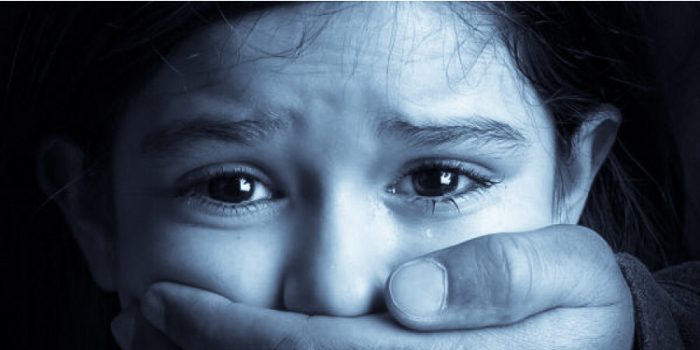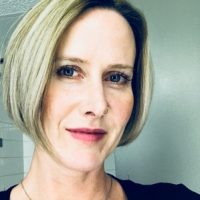After recently coming out publicly as a childhood sexual abuse survivor, some people, especially those closest to me, have questioned why I didn’t tell anyone about my abuse while it was happening. Here are some of the reasons.
- My abuser convinced me that what ‘we’ were doing was ‘normal’.
- I cared about my abuser and felt the need to protect them.
- I felt I would be betraying this person if I told my parents about the sexual contact.
- My abuser warned me that if our parents found out about what ‘we’ were doing, we would be punished for it.
- I remained silent to protect my parents from upsetting information.
- I was confused and ashamed because I experienced physical pleasure, arousal, and emotional intimacy from the abuse.
- I felt that I had permitted the abuse and therefore it was partly my fault.
- My abuser bribed me with treats and favours when I said ‘no’.
- I grew up in a home where the perception of perfection was of utmost importance.
- I was afraid of what might happen to my family if I told, specifically that our family might be irreparably broken or that my abuser would be punished severely.
- I believed I was complicit in the abuse because I ‘went along with it’.
- I was embarrassed and humiliated by what was happening.
As an adult survivor of childhood sexual abuse, I can tell you the wounds are very deep. The shame is unbearable. And the fallout of coming out can be brutally devastating. But the first step toward my healing was breaking the silence.
Having experienced tremendous backlash from my own family as a result of going public, which has been difficult but also surprisingly validating, I want you to know what you should and shouldn’t do if your adult child/sibling/family member reveals they experienced childhood sexual abuse.
Stay calm
Survivors of any kind of abuse have developed a heightened sense of perception and ability to detect potential threats. People who were raised on survival see things differently than those what were raised on love. Regardless of how devastated you are by the news, you need to ensure this person knows that you don’t view them any differently. That they aren’t “damaged goods.” Encourage them to get support and specialized treatment, if they haven’t already, and that in so doing, they can and will recover. Remind them that many successful people, including many famous figures, are survivors of sexual abuse.
Believe what they say
Thank them for trusting you enough to share what happened with you. Let them know you love them. If what they are telling you is hard to believe, remind yourself that false disclosures are rare, especially amongst adult survivors. If you absolutely feel you need more information, ask clarifying questions in a supportive manner. DO NOT ask questions that imply you disbelieve the person.
Establish safety
Sexual abuse takes away a person’s sense of control over his or her surroundings and can result in a dramatic feeling that they are ‘unsafe’. Often, survivors continue to feel this lack of safety into adulthood. Reassure the person that they are safe and that they can trust you. Offer support, but be careful about offering advice, unless you have specific training or experience with childhood sexual abuse.
Free them of self-blame
A person disclosing childhood sexual abuse needs to be re-assured that they are not to blame in any way. They are not to blame for causing it. They are not to blame for not stopping it. They are not to blame for not telling about it. Though it may seem unimaginable to you, shame and self-blame are some of the most common responses to sexual abuse, and some of the most difficult to overcome. DO NOT question the person about not having told someone about the abuse while it was happening.
Sometimes, as an adaptive measure, the person will feel they were responsible for the abuse rather than acknowledge how out of control they felt. It is natural for children to feel they are the cause of the behaviors and feelings of those around them and it is common for survivors to carry these feelings into adulthood.
Remember, even if the person admits that they gave permission or acted willingly, this does not imply they consented. A child’s permission or even request to play a sexual touching game never excuses the abuser from taking full responsibility for the interaction. It is always the abuser’s responsibility to set the limit or say “no.” The child is never accountable. Stressing to the person that the abuser was in the wrong and that what happened wasn’t their fault can help free the person from feelings of self-blame.
Express any negative feelings you may have to appropriate people
When survivors of childhood sexual abuse detect pain and upset in others resulting from their disclosure, this can reinforce their feelings of guilt and shame.
Anger or outrage is a normal and appropriate response when we feel we have been deceived, or when we learn someone we love has been harmed or done harm. Be aware the survivor may have a propensity to believe they are the cause of any negative feelings you express. Choose friends and professionals who can support you in expressing your reactions. Find someplace away from the person to express your anger and grief.
Don’t assume the person will feel better if they hear that you are outraged and disgusted with the person’s abuser. Even if the person is also angry, this may hurt them even more, especially if they still have positive feelings toward the person who abused them.
Get help
Recognize that, as a family member of the survivor, you may be greatly affected by this information and you may need special help to deal with it, too. Also, keep in mind that these kinds of family conflicts do not typically get better without help from an outside specialist who can assist in the healing process.
By getting effective outside help, everyone involved has an opportunity to begin the journey towards recovery.
As every wounded little soul makes its way towards healing, it is my hope that all involved will get the help they need, and that no one would continue to live with shame and guilt. Together, or alone, we can help stop the cycle of hurt people continuing to hurt people.











Read 0 comments and reply